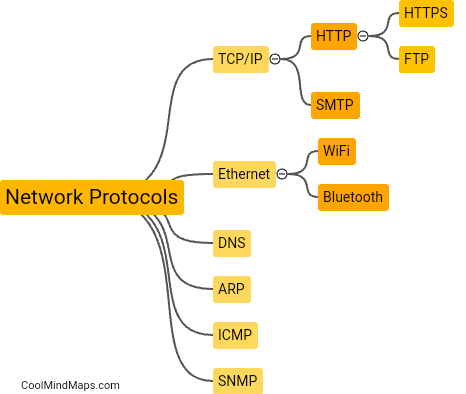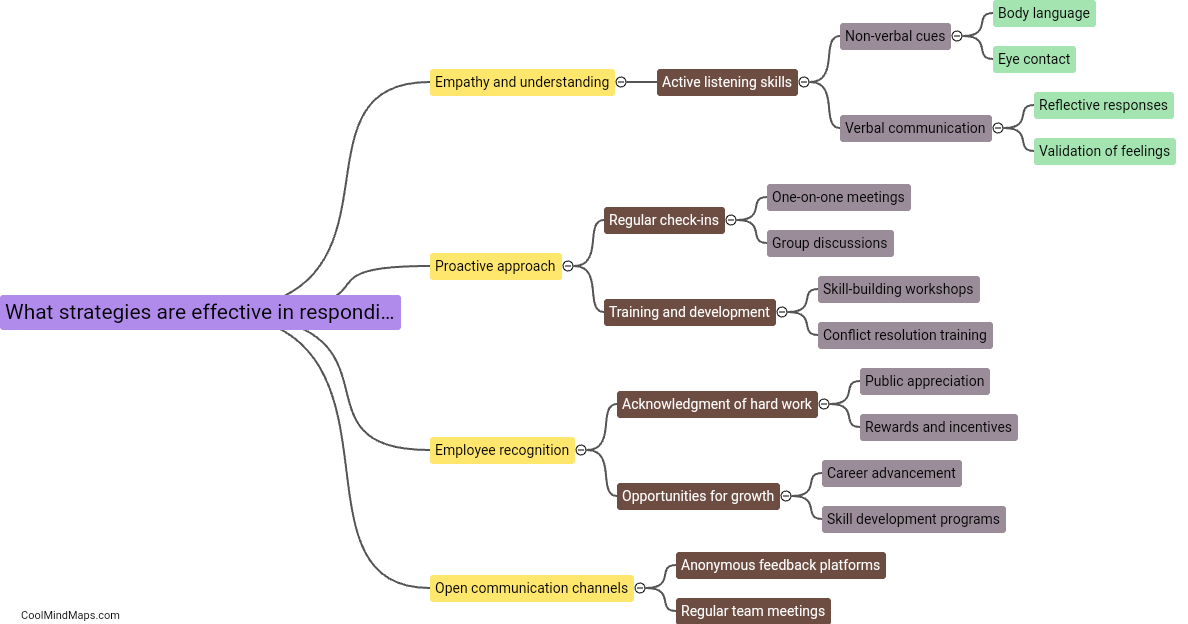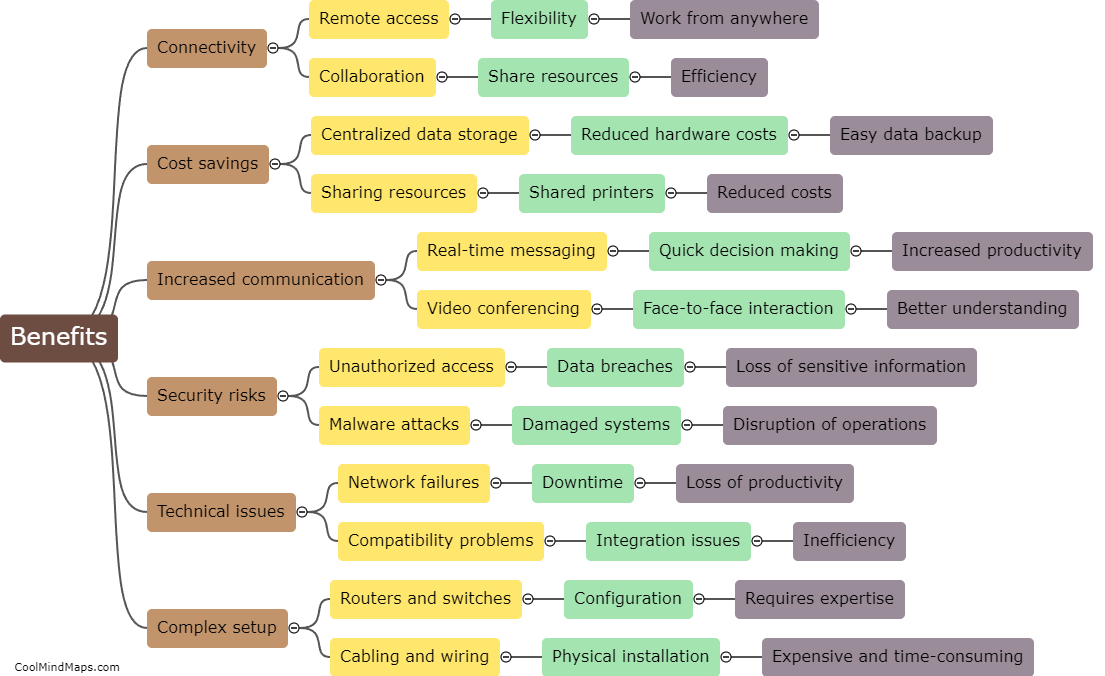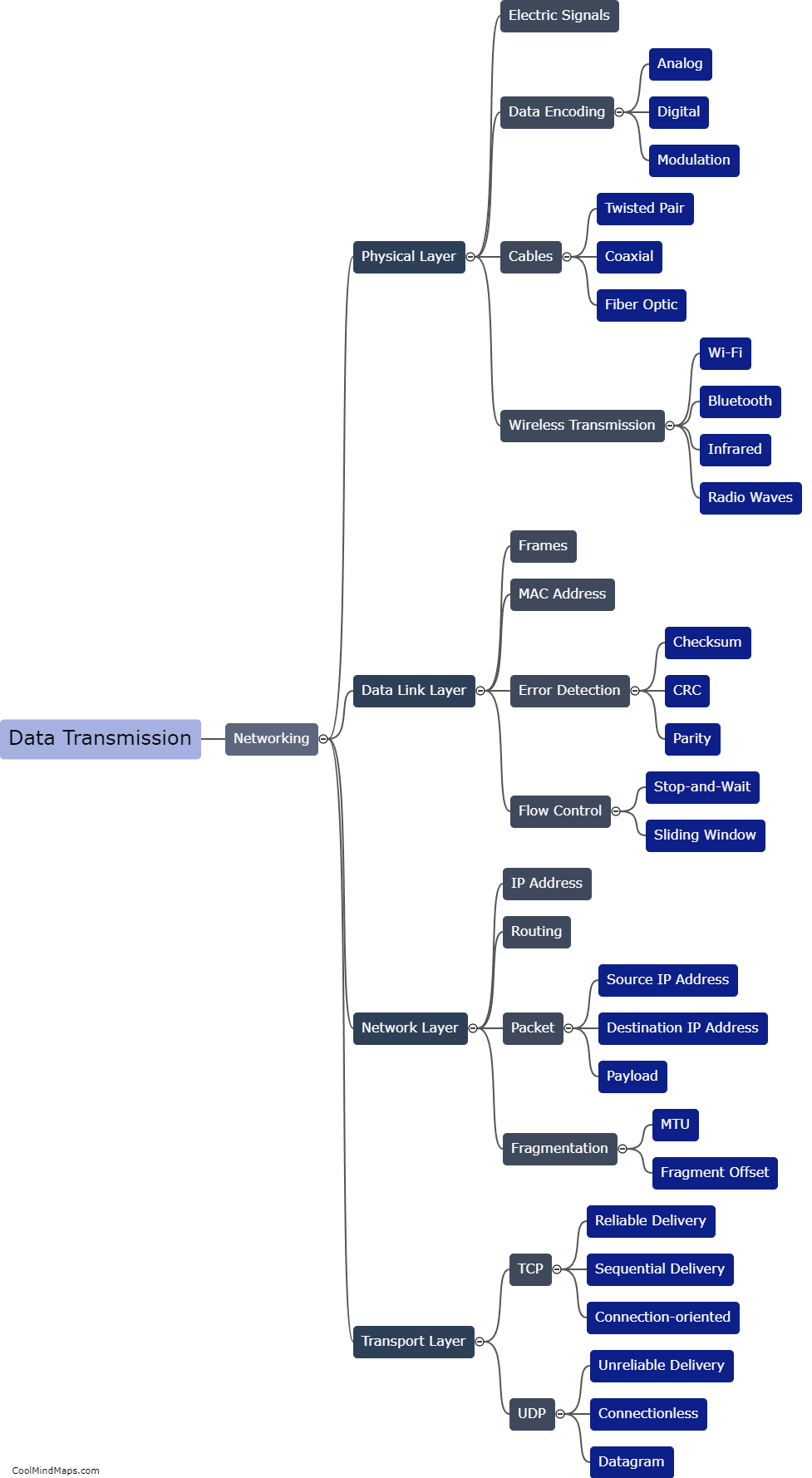What are the different network protocols?
Network protocols are sets of rules and guidelines that ensure efficient and reliable communication between devices connected to a network. There are several different network protocols that serve specific purposes. One of the most commonly used protocols is Transmission Control Protocol/Internet Protocol (TCP/IP), which is the foundation of the internet and enables the exchange of data packets between devices. Another protocol is Hypertext Transfer Protocol (HTTP), which is used for transmitting web pages and resources over the internet. Other notable network protocols include Secure Shell (SSH) for secure remote access, Simple Mail Transfer Protocol (SMTP) for email communication, and File Transfer Protocol (FTP) for transferring files between devices. These protocols play a crucial role in enabling efficient and secure communication within networks.

This mind map was published on 10 November 2023 and has been viewed 106 times.











